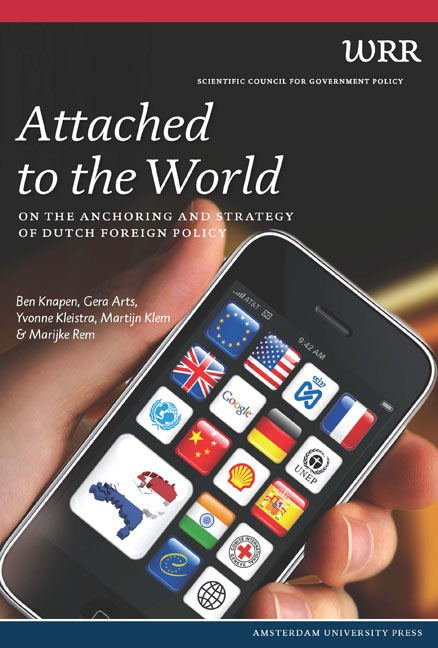Book contents
- Frontmatter
- Contents
- Summary
- Preface
- 1 Motivation and Background: An Introduction
- 2 From Fragmentation to Strategy
- 3 Europe: Arena and Link
- 4 Directing and Facilitating
- 5 Conclusions and Recommendations
- List of Abbreviations
- References
- List of Interviewees
- Appendix 1 The Interrelatedness of the Dutch EconomY
- Appendix 2 The Interrelatedness of the Netherlands With other Nations
- Appendix 3 The Dutch Network of Embassies in a Comparative Perspective
- Appendix 4 Sovereignty in Eu Member States: A Comparison
Summary
Published online by Cambridge University Press: 19 January 2021
- Frontmatter
- Contents
- Summary
- Preface
- 1 Motivation and Background: An Introduction
- 2 From Fragmentation to Strategy
- 3 Europe: Arena and Link
- 4 Directing and Facilitating
- 5 Conclusions and Recommendations
- List of Abbreviations
- References
- List of Interviewees
- Appendix 1 The Interrelatedness of the Dutch EconomY
- Appendix 2 The Interrelatedness of the Netherlands With other Nations
- Appendix 3 The Dutch Network of Embassies in a Comparative Perspective
- Appendix 4 Sovereignty in Eu Member States: A Comparison
Summary
Attached to the World: On the Anchoring and Strategy of Dutch Foreign Policy
The Netherlands is attached to the world. Few other countries are as closely interwoven politically, economically and socially with the world around us. That makes Dutch foreign policy a strategic affair. The Dutch government has to deliver an alert response to the risks and opportunities of a rapidly changing world.
Today's world can best be described as hybrid in nature. On the one hand, there is the familiar world of geopolitics and nation states. That world is currently going through a shift in the balance of power towards the East. On the other hand, there is the ‘network world’, populated not only by states, but increasingly also by non-state actors. State borders present virtually no obstacle to these networks. Seen from this perspective, it is no longer possible to speak of the foreign policy of the state; it is more correct to think in terms of many different expressions of foreign policy within a ‘disaggregated state’. Increasingly, ministries and agencies have their own objectives in international affairs and participate autonomously in international networks, especially in a European context. As a consequence, the traditional distinction between ‘domestic’ and ‘foreign’ is becoming increasingly blurred.
Most people in the Netherlands experience this differently. To them, the Dutch state remains the primary actor in relations with the outside world. At the same time they are unsure what position the Netherlands occupies in today's world. Familiar reference points are disappearing and partly as a result of the financial crisis, global power relations are shifting faster than most people could ever have imagined. There is a growing tension between this feeling of being threatened by the outside world and the need to nurture the relationship with that same world.
Domestic tensions, fading dividing lines between ‘domestic’ and ‘foreign’, and the opportunities and risks presented by a hybrid world create a need for a study of the changing conditions of foreign policy and of the possibilities and limitations these conditions offer. This report aims to contribute to a new orientation towards the outside world. It focuses on the question of how the Netherlands can develop a foreign policy strategy that reflects both the shifts in the global power balance and the radically altered nature of international relations.
- Type
- Chapter
- Information
- Attached to the WorldOn the Anchoring and Strategy of Dutch Foreign Policy, pp. 7 - 12Publisher: Amsterdam University PressPrint publication year: 2012



